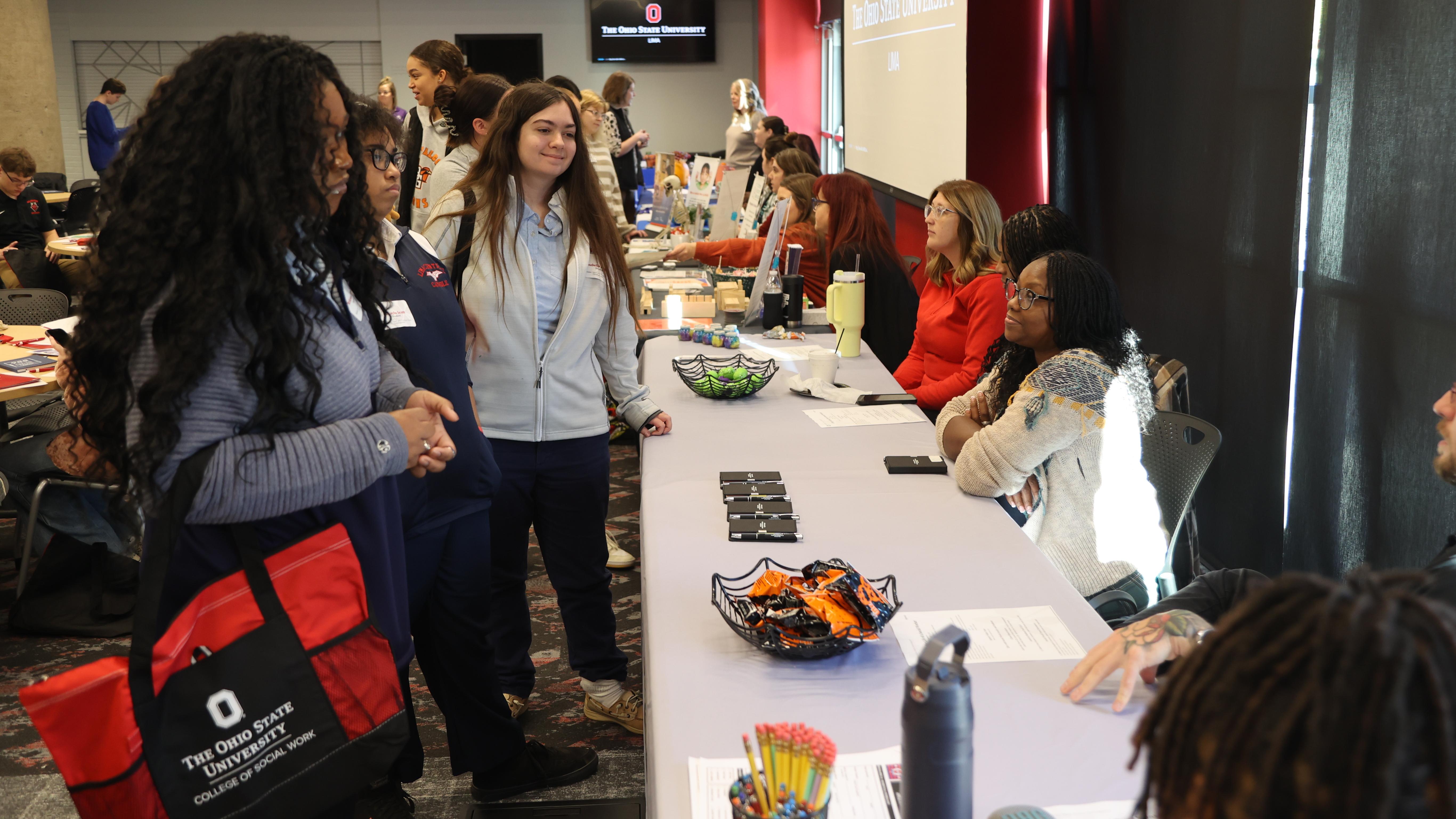The demand for trained and licensed social workers continues to expand faster than the slots can be filled in our area. The Ohio State University at Lima has built close relationships with agencies and other employers to fill the ongoing need by bolstering the pipeline from high school through employment.
“There is a continued strong demand for social workers, particularly in northwest Ohio. We need more professionals in careers that support behavioral health care — including social workers specializing in mental health and substance misuse, as well as our partner professions such as counselors, psychologists, and psychiatric nurse practitioners,” said Stephanie Price, BSSW program coordinator at Ohio State Lima.
Part of the workforce initiative includes sharing what the vast field of social work looks like and what a job in the field would look like once a student has completed their bachelor's degree and become a licensed social worker.
At events like the recent A Day in the Life of a Social Worker, now in its third year, prospective social workers can see and understand where and how they can make a difference in their communities. Practicing social workers from 14 local agencies talked to more than 40 high school students about what they do.
“There is often confusion about the role of social workers and the scope of what we do,” said Elizabeth Osborne, LISW, behavioral health specialist at Ohio State Lima. “Events like A Day in the Life of a Social Worker are valuable opportunities to educate students and the community that this profession encompasses many paths and areas of specialization.”
A large part of Osborne’s job is to bring the many facets of social work to the community. Her role in building the social work path developed out of a partnership with the Mental Health and Recovery Services Board of Allen, Auglaize and Hardin Counties. As part of a workforce development effort, Ohio State and MHRSB work together to build up the internship experiences that can lead directly to qualified and seasoned permanent employees. Employers were hesitant to commit to internships due to workforce shortages that left little time to offer meaningful internship experiences to the students.
To overcome the internship hurdle, Osborne works in partnership with local behavioral health agencies to provide the required supervision requirements, freeing local providers to provide valuable experiences for their interns.
“The hope that is these more meaningful internships will promote interest in the community behavioral health field and will create a pathway to filling vacancies for these local agencies. In turn making services more accessible to those in need,” said Katie Walker, clinical director at the Mental Health and Recovery Services Board of Allen, Auglaize and Hardin Counties.





